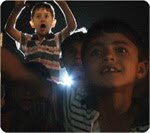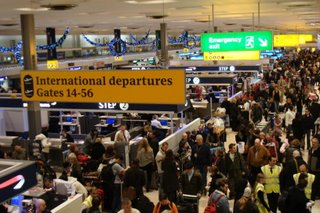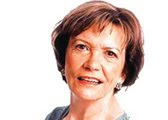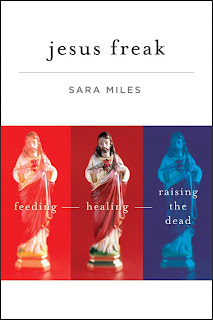
Part two of the preview of the upcoming Belfast Film Festival.
If cinema isn’t your taste, there’s also the Titanic Made in Belfast festival (3-11 April), the Cathedral Quarter Arts Festival (29 April-9 May), Belfast Children’s Festival (21-30 May) as well as the Festival of Fools (29 April–3 May) and many, many more!
But back to the films ...
Saturday 24 April
10am, 1pm, 3.30pm, QFT – Short Film Competition – Three two-hour sessions featuring short films by (Northern) Irish film-makers from 3 minute to 20 minutes long made in the last year.

8pm, Bff Beanbag Cinema – Post Apocalyptic Film Night / The Quiet Earth – Following a short episode from The Twilight Zone, the main event is a screening of the 1975 cult classic The Quiet Earth where Zac wakes up and finds that his government project has accidentally killed everyone else on the planet … until he discovers other struggling survivors.
9pm, QFT - 5 Day Shelter – Five characters, five days. Can they get beyond quiet desperation and isolation to reconnect with the beauty around them? World premiere.
Monday 26 April
8pm, Spectrum Centre – Shankill – A 1994 film presenting “a candid portrait” of the hopes and fears of ordinary working class people living on the Shankill. Followed by a Q&A.
Tuesday 27 April

7.15pm, QFT – Metropia (15) – 2024. Europe is running out of oil and faces financial collapse. A paranoid call-centre worker is forced to ride on the underground system (that spans across the continent) and has to fight against the voices in his head. Acclaimed for its style of photo-montage animation.
7.30pm, Black Box Café – The A-Z of Belfast Cinemas – Brian Henry Martin talks his way around one hundred years of cinemas in the city, through the sixty venues and countless stories.
9.15pm, QFT – Winnebago Man (PG) – Jack Rebney made corporate videos to promote Winnebago touring vans. However, his outtakes became internet sensations. Film-maker Ben Steinbauer tracked down the irascible legend to make a hilarious, moving and at times foul-mouthed film.
Wednesday 28 April
8pm, Bff Beanbag Cinema – The Fabulous Baron Munchausen (PG) – A Czechoslovakia special-effects and visual masterpiece, opening with a modern-day cosmonaut confronting pioneer space traveller Cyrano de Bergerac on the moon!

8pm, John Hewitt Bar – 9th Belfast World Pong Championship – It’s not a film, but it’s an annual part of the film festival. Old-fashioned electronic Pong, played out on the big screen. Contact the box office if you want to book a space to play.
9.30pm, QFT – Symbol (15) – “A Japanese man wakes up alone in a brightly illuminated white room with no windows or doors. When he presses a protuberance that appears on one wall, a pink toothbrush materializes from nowhere, clattering to the floor and setting in motion a genuinely bizarre chain of events. Soon the imprisoned man is engaged in absurd and hilarious attempts to escape the gleaming room.” Intrigued? I am.
Thursday 29 April

6.45pm, QFT – The First Movie – Critic, and now film-maker Mark Cousins took his mobile cinema to a northern Kurdish village in Iraq. Handing out digital cameras to the children, their highly creative filming (including “a continuously held camera shot … [a] revealing fable of a boy who, without friends or toys, [who] confides his hopes, dreams and thoughts to the mud) is included in this war zone documentary, as Cousins reflects on his own childhood in Northern Ireland. The film will be introduced by Mark Cousins.
7pm, QFT – Tsar (15) – 16th Russia, Ivan the Terrible sees the Last Judgment approaching. During his reign of terror he faces opposition from his friend Philip, the superior of a monastery. A clash of cultures and ideologies. Superb cinematography.

8pm, First Church of Christ Scientist, Rugby Road, Belfast – The Prisoner – Catch the screening of an episode of the original series of The Prisoner (before the new series starts on ITV) in an unusual venue. The First Church of Christ, Scientist was designed by architect Clough Williams-Ellis, who was also responsible for the seaside village of Portmeirion used as the backdrop for The Prisoner. Followed by a talk on Williams-Ellis and the importance of architectural heritage in Belfast.
9.15pm, QFT – Summer Wars (15) – Second Life meets animé. Everyone is using the Oz virtual world/social network for fun and real world activities. A high student spends his summer working for Oz, receives a proposal from his crush and tries to solve a mathematical equation with an unexpected consequence. “A near-perfect blend of social satire and science fiction, at once timely and timeless, sardonic and optimistic.”

9.30pm – QFT – 1 (15) – Set in a bookshop in which all the rare books have been replaced with copies of a book called “1”, the story of “the fate of humanity in one minute”. Based on an essay by the Polish science fiction author Stanislaw Lem (who wrote Solaris). Thought provoking, but with a mysterious plot.
Friday 30 April
6.45pm, Dublin Road Movie house – Tetro – A personal yet fictional film from Francis Ford Coppola following one brother searching for his older brother in Buenos Aires before grappling with their shared past who has been missing for over a decade. Black and white.































